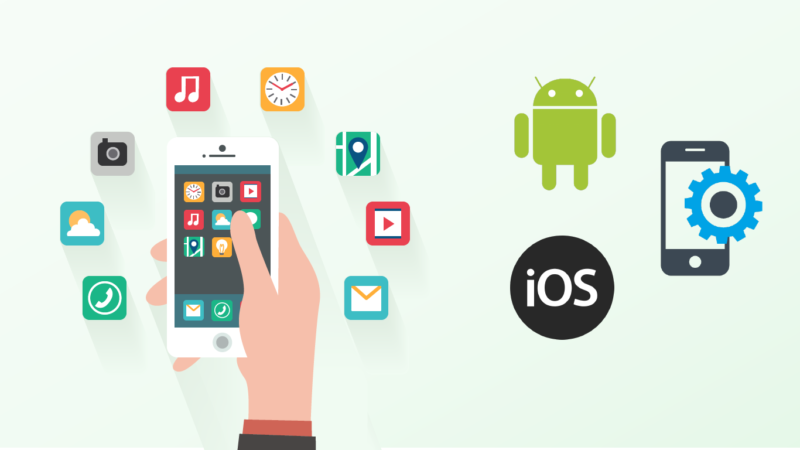In today’s fast technology digital era, mobile applications have become an indispensable part of our lives. Whether it’s shopping, communication, entertainment, or productivity, there’s an app for almost everything. As businesses scramble to harness the potential of mobile platforms, hybrid app development services have emerged as a strategic choice. But what exactly fuels these versatile applications? Let’s dive deep into the world of hybrid app development and explore the technologies that power it.
What is hybrid app development?
Before delving into the technologies behind app development, it’s essential to grasp the concept itself. Hybrid apps harmonize native and web application elements. They are developed using web-based technologies, including HTML, CSS, and JavaScript, and then wrapped in a native container. This approach allows hybrid app development platforms to create cross-platform apps that can run on various operating systems, such as Android and iOS.
- HTML (Hypertext Markup Language)
HTML forms the backbone of hybrid app development. It’s the language used to structure content on the web, providing a foundation for text, images, links, and more. In hybrid app development, HTML is used to create the user interface (UI) of the application. Developers can design and layout the app’s elements, ensuring a visually appealing and user-friendly experience.
- CSS (Cascading Style Sheets)
CSS complements HTML by controlling the app’s aesthetics. It’s responsible for styling elements, including fonts, colors, spacing, and layout. With CSS, developers can make their hybrid apps look consistent and attractive across different devices and screen sizes.
- JavaScript
JavaScript, often abbreviated as JS, is the dynamic component of hybrid app development. It’s a powerful scripting language that enables interactive features and functionality. Through JavaScript, developers can handle user input, perform calculations, and interact with APIs (Application Programming Interfaces). This scripting language is a game-changer when it comes to making hybrid apps more dynamic and responsive.
What are the key technologies behind hybrid app development?
Here are the core technologies that drive hybrid app development:
1. Frameworks and Libraries
Hybrid app development relies heavily on frameworks and libraries to simplify the development process and enhance the functionality of apps. These tools help hybrid app development services overcome the challenges of cross-platform development.
- Apache Cordova Formerly known as PhoneGap, Apache Cordova is an open-source platform that bridges the gap between web technologies and native device features.
- React Native While React Native is typically associated with native app development, it also plays a crucial role in hybrid app development.
- Ionic Ionic stands as a widely adopted framework for constructing hybrid apps by employing HTML, CSS, and JavaScript.
2. Backend Services and APIs
No hybrid app is complete without backend services and APIs. These elements enable the app to interact with servers, databases, and external data sources, offering a seamless and feature-rich experience to users. REST, short for Representational State Transfer, is an architectural style that outlines a series of principles for shaping web services.
RESTful APIs are the foundation for communication between the hybrid app and the server. GraphQL is an alternative to RESTful APIs, gaining popularity for its flexibility and efficiency. Developed by Facebook, it allows apps to request precisely the data they need, reducing data transfer and enhancing performance.
3. Databases
Databases are where the app stores and retrieves data, and hybrid app development services play a significant role in setting up and maintaining them. Hybrid app development provides a range of options, allowing for customization based on the app’s distinct needs.
SQLite: SQLite is a lightweight, serverless database engine that’s commonly used in hybrid apps. It’s perfect for apps that need to store structured data locally on the device. SQLite is efficient, fast, and highly reliable.
Firebase: A product by Google, offers a real-time database that’s ideal for apps requiring real-time synchronization across devices.
4. Cross-Platform Development Tools
Hybrid app development is all about creating apps that can run on multiple platforms, which requires the use of cross-platform development tools. As a Microsoft-owned platform, Xamarin offers developers the means to develop native applications for both Android and iOS, all while utilizing C#. It offers a single codebase for both platforms, making it a favorite among developers who are already familiar with C#.
Flutter, developed by Google, is a UI toolkit for building natively compiled applications for mobile, web, and desktop from a single codebase. It’s known for its expressive and flexible design, allowing developers to create beautiful, natively compiled applications. You simply check in and out of app development.
5. App Testing and Debugging
Ensuring the quality and functionality of a hybrid app is a critical aspect of development. To achieve this, developers employ a variety of testing and debugging tools. For iOS and Android platforms, Appium is an open-source tool that automates native, mobile web, and hybrid applications.
It allows for comprehensive testing of hybrid apps, ensuring they work flawlessly on various devices and operating systems. Xcode serves as a comprehensive, integrated development environment (IDE) tailored for macOS, offering a set of tools for app development, testing, and debugging. It’s a must-have for developers working on iOS hybrid apps. If you need more consultation on how hybrid app boost your mobile strategy click on this link.
Conclusion
In the ever-evolving landscape of app development, hybrid apps have secured their place as a versatile and cost-effective solution. By harnessing the power of web technologies, frameworks, and libraries, hybrid app development services offer a compelling alternative to traditional native app development. With access to a wide array of backend services, databases, cross-platform development tools, and testing resources, developers can create high-quality hybrid apps that cater to a broad audience. So, if you’re looking to build the next big thing in the app world, consider harnessing the power of hybrid app development and watch your ideas come to life across multiple platforms.

